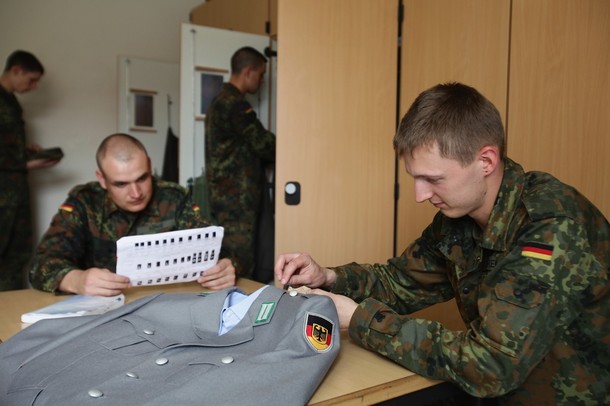
From Peter Flory, the New Atlanticist: [T]he steps announced to reshape German armed forces and meet Germany’s stringent budget cutting goals are cause for concern for the U.S. and NATO, especially at a time when other leading European powers are also scaling back their capabilities. Moving to an all-professional force and increasing deployable forces to 10,000 soldiers are important and welcome steps, politically as well as militarily. But reducing to a military of 175,000, while cutting equipment and force modernization, risks losing critical mass in important areas, and imperils the DPG goal of a full spectrum force that provides a “reliable and credible” contribution to NATO. The issue is not simply military – the DPG recognizes the need to ensure that Germany’s contributions suffice to ensure appropriate influence and a German “say in planning and decisions.” (Another way in which Germany can exercise leadership is through continued robust participation in multinational programs like Alliance Ground Surveillance and new Smart Defense initiatives.)
Underlying capability is the question of defense spending — a sensitive topic, especially when Germany is being asked to sustain a burdensome leadership role within the Euro zone. But Americans too face tough choices to reduce spending and reboot the American economy, as well as aging populations and other social needs . As Secretary Gates said, American political leaders and taxpayers may question why they should spend over 5 percent of GDP on defense when other nations spending far less make further cuts in their defense budgets. So it is critical for Germany to return to more robust levels of defense spending as soon as possible.
If one goal of investment in Germany’s defense forces is to “secure Germany’s capacity to act in the field of foreign policy,” another must be to bolster the capacity to act quickly and responsively. So flexibility is another critical element of what I would hope to see in the Bundeswehr, in particular, the ability to be deployed quickly and ready to carry out the full range of missions in complex and sometimes ambiguous situations. Flexibility in this sense is not a question of military deployability. It is a question of a flexible legal framework, and a responsive political system that can make difficult decisions to join with allies on behalf of common security and shared values.
German policy on out-of-area deployment of armed forces has evolved substantially and positively since the fall of the Berlin Wall and early debates over German engagement in the Balkans. But as the missed opportunity in Libya shows, Germany still has difficulty with the role of military force in international relations. Widely-reported caveats on German soldiers in Afghanistan (later reduced) were an important source of political friction and frustration for NATO commanders charged with ensuring a cohesive Allied military effort. It would be unfortunate if these were remembered longer than Germany’s many sacrifices and contributions in the ISAF mission. Like other Americans, I admire Germany’s determination not to forget the past, but like other Americans – and I believe, Europeans as well – I see Germany today as a normal country whose past should no longer stand in the way of helping build a more secure future.
Ultimately, the key to a capable and flexible Bundeswehr is continuing evolution in a German political class and society that in many cases remain skeptical of German military ambition, and undervalue the tremendous contribution the German military has made to the country’s security and prosperity, and yes, the peace that Germany and Europe have enjoyed since the terrible first half of the 20th century.
Peter Flory is Distinguished Senior Visiting Fellow at the National Defense University’s Center for Transatlantic Security Studies, and a member of the Strategic Advisors Group of the Atlantic Council. He served as Assistant Secretary General of NATO for Defense Investment from 2007 to 2010, and from 2005 to 2006, was U.S. Assistant Secretary of Defense for International Security Policy. This article reflects his personal views. This piece was published on the INSS Dynamic Dialogue Blog.
Author’s Note: This article was written at the request of the editors of INTERNATIONALE POLITIK, who asked for an American perspective for their forum on “Alliance Partners on Bundeswehr Reform” (“Buendnispartner zur Bundeswehrreform”). The original appears in INTERNATIONALE POLITIK 6/2011, with additional articles by British, German and French authors.
Image: getty%207%205%2010%20German%20Bundeswehr%20recruits.jpg
